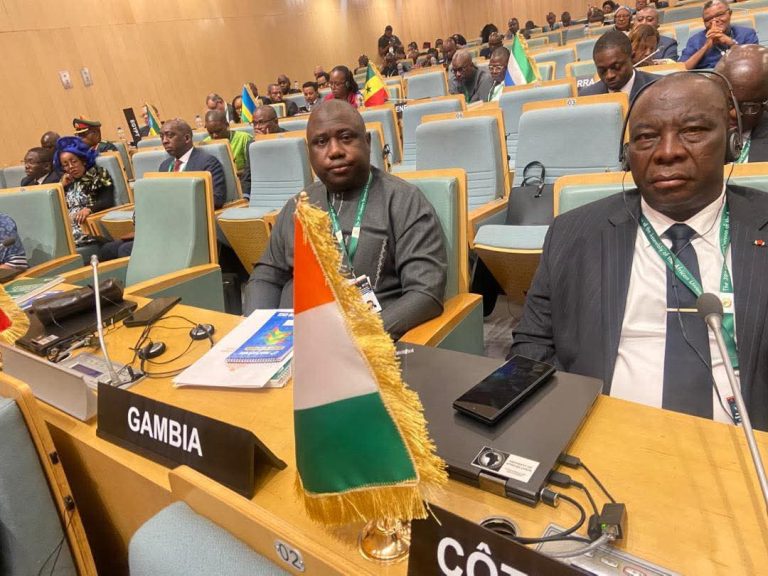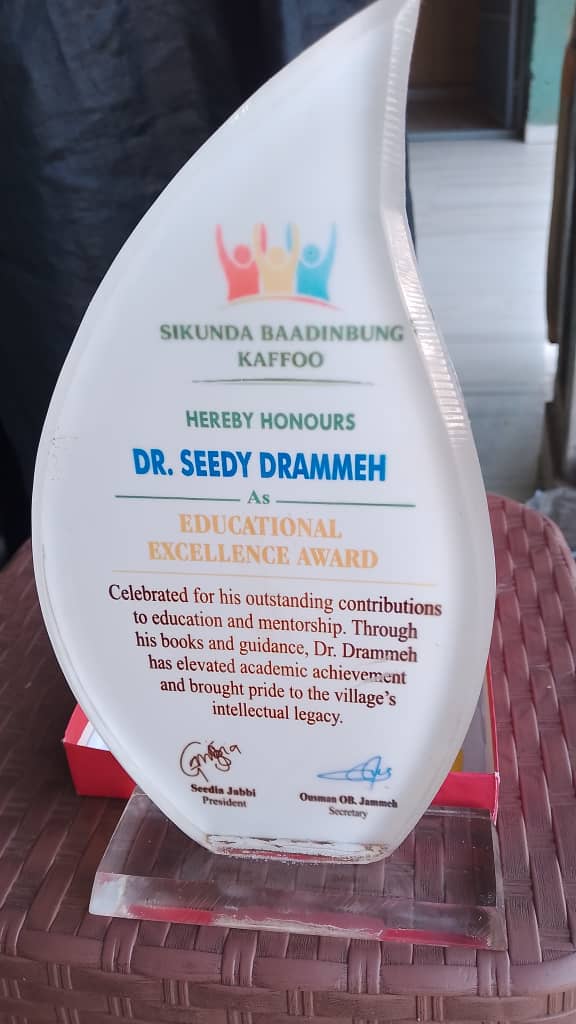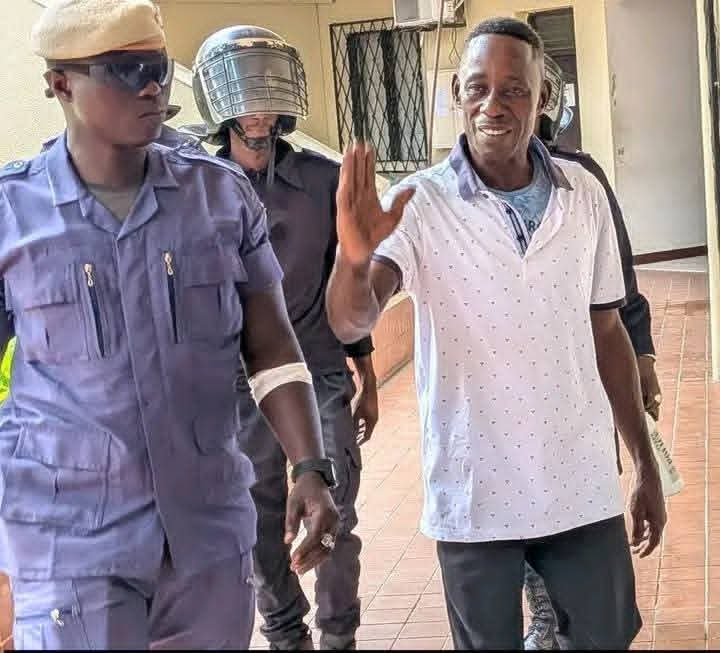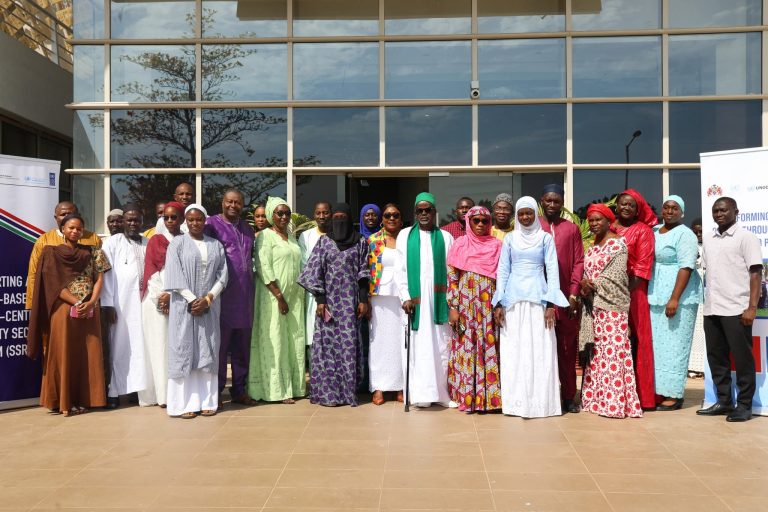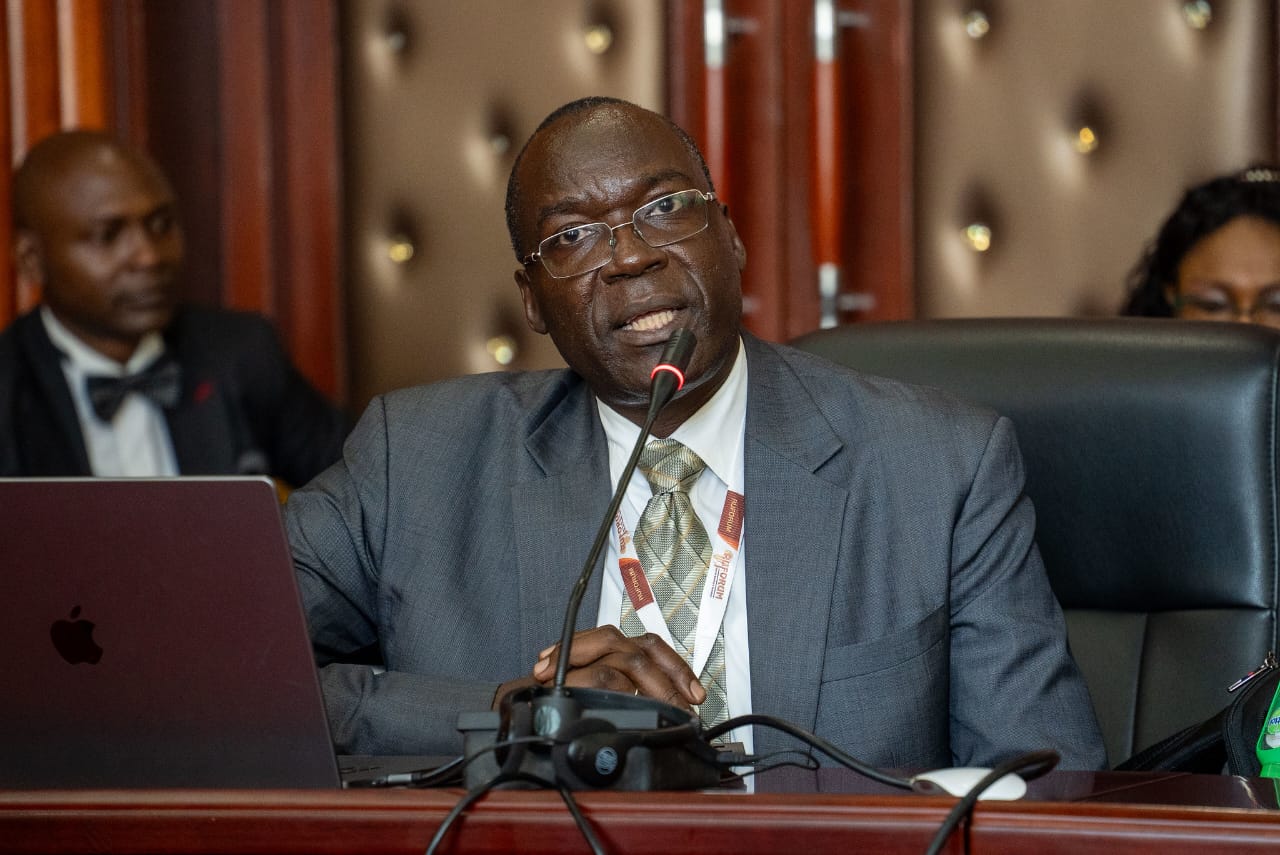
By Mamadou Edrisa Njie
The Executive Secretary of the Regional Universities Forum for Capacity Building in Agriculture (RUFORUM), Prof. Patrick Okori has said that his organisation was setup to transform Higher Agricultural Education (HAE) and drive a new era of Science, Technology, and Innovation (STI) to advance resilient agri-food system in Africa including the Gambia.
In an interview with this medium, he highlighted that it is a body that provides a platform for networking, resource mobilization, and advocacy to transform universities for relevance towards inclusive sustainable development.
He also explained that it was established to rationalize resource use and enhance economies of scale and scope, as well as provide a platform for training quality graduates to support development processes in Africa.
“RUFORUM was established by ten Vice Chancellors in 2004, and is a consortium of 175 universities operating within 40 countries spanning the African continent which is coordinated by a Secretariat hosted by the Ugandan Government at Makerere University in Kampala, Uganda,” he noted while highlighting that the organization evolved from its predecessor, the Forum on Agricultural Resource Husbandry (FORUM) programme of the Rockefeller Foundation.
In July 2014, RUFORUM signed a cooperation agreement with the African Union to support the implementation of the African Union Science, Technology and Innovation Strategy for Africa (STISA 2024). RUFORUM is also an implementing partner of the Action Plan for the Committee of Ten Heads of State and Government (C10) Championing Education, Science and Technology in Africa, endorsed in November 2018 in Lilongwe, Malawi and the Comprehensive Africa Agriculture Development Programme (CAADP).
The University of the Gambia (UTG) became a member of RUFORUM in 2022 and signed the RUFORUM Charter shortly thereafter.
Singling out the opportunities available for the UTG, Prof. Okori explained that the leadership of the University of The Gambia will be exposed to the forum of 175 Vice Chancellors from across Africa, including Africa’s premier universities where it will share and learn from their peers enabling it to effectively and efficiently generate relevant solutions to underpin the country’s transformative development aspirations
The Vice Chancellors’ Forum, he explained, is an avenue that the UTG can utilize to create strategic partnerships to strengthen itself in various areas and leverage resources from other universities across the network such as infrastructure, human resources, knowledge sharing among others.
The RUFORUM Executive Secretary further highlighted that the UTG will have the opportunity to strengthen its staff capacity through the Graduate Teaching Programme (GTA) that supports training at doctoral level whereby staff from UTG can further their studies by studying in another RUFORUM member university without paying tuition fees.
According to him, the UTG may also collaborate with the National Agricultural Research Institute of the Gambia (NARI) to increase the number of staff PhD. holders at the NARI through the GTA programme.
While speaking on other opportunities for the UTG students, he said: “Staff and students from UTG can benefit from skills enhancement short courses for building research capacity such as research methods, scientific data management, scholarly writing and proposal development. The leadership, staff, and students from UTG can participate in RUFORUM annual conferences to showcase the university through exhibitions, poster and oral presentations, and networking events.”
He continued: “UTG is set to participate in collaborative grant proposal writing and implementation with other RUFORUM member universities by responding to calls for proposals and other partnership opportunities to facilitate access to different resources (human, infrastructure and social capital) from its diverse network.
Prof. Okori further disclosed that students and Alumni from UTG can obtain scholarships advertised through the RUFORUM Platform.
Recounting on the organisation’s value proposition, which includes access to financial resources, collaborative partnerships as well as Evidence Generation for Policy Development, the RUFORUM Executive Secretary noted that on average, they release about 5 scholarship calls per year depending on availability of funds. He however, added that they also disseminate scholarship opportunities from other institutions from the RUFORUM Network.
He also buttressed that RUFORUM has developed and implemented three main types of research grants such as Community Action Research Projects (CARPs), Graduate Research Grants (GRGs) and Doctoral Research Grants (DRGs). He said the CARPs target strengthening specific commodity value chains that are priority for particular countries and regions in Africa.
This grant, according to him, involves working with agriculture ecosystem actors such as universities, TVETs, farmers, private sector players, civil society and local governments to co-generate technologies and innovations responsive to the needs of value Chain actors. It also supports training of PhD and MSc students working with undergraduate research assistants.
For the Graduate Research Grants (GRGs), he explained that RUFORUM provides two-year grants awarded to the principal investigator (an individual senior lecturer of a university) to support agricultural action research and the training of MSc students.
The RUFORUM Executive Secretary emphasized that the Doctoral Research Grants (DRGs) facilitate research and doctoral training for students.
Prof. Okori concluded by saying that RUFORUM has over the years collaborated with lots of universities in Africa to implement successful projects which led to the creation of business enterprises, development of innovative curricula and training of researchers at Masters and PhD levels. Other benefits included the development and testing of technologies with farmers to improve productivity.

